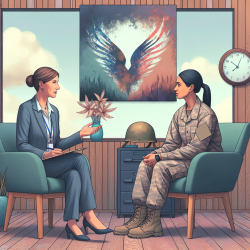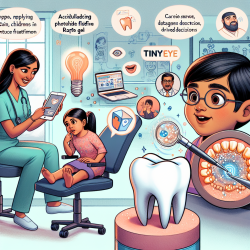Introduction
Intimate Partner Violence (IPV) is a pervasive issue affecting millions of women worldwide, with significant implications for their physical, mental, and social well-being. The recent study, "Women Tell All: A Comparative Thematic Analysis of Women’s Perspectives on Two Brief Counseling Interventions for Intimate Partner Violence," provides valuable insights into the effectiveness of two interventions: Recovering from Intimate Partner Violence through Strengths and Empowerment (RISE) and Enhanced Care as Usual (ECAU). This blog aims to help practitioners enhance their skills by implementing the study's findings and encouraging further research.
Understanding the Interventions
The study involved 58 women veterans who participated in a randomized clinical trial comparing the RISE intervention to the ECAU. RISE is a modular, individualized counseling intervention focusing on empowerment and self-efficacy, while ECAU is an advocacy-based intervention providing psychoeducation, safety planning, and resource referrals. Both interventions were rated as highly helpful by participants, with RISE receiving a higher percentage of positive feedback.
Key Findings and Practitioner Insights
1. Importance of Patient-Centered Care
Participants valued the patient-centered approach of both interventions. RISE's flexibility in session focus and duration allowed women to tailor the intervention to their needs, fostering a sense of empowerment and self-determination. Practitioners should consider incorporating flexible, patient-centered approaches in their practice to enhance treatment outcomes.
2. Empowerment and Self-Efficacy
RISE participants reported increased empowerment, confidence, and independence, highlighting the importance of interventions that focus on building self-efficacy. Practitioners can enhance their skills by integrating empowerment strategies into their counseling sessions, helping clients recognize and utilize their strengths.
3. Social Support and Resource Utilization
Both interventions emphasized the importance of social support and resource utilization. Participants appreciated the tangible resources and connections provided, which contributed to a sense of social connectedness. Practitioners should ensure that clients have access to comprehensive resources and support systems, facilitating their recovery and well-being.
4. Flexibility and Telehealth Options
The study found that telehealth options were feasible and acceptable, particularly during the COVID-19 pandemic. Practitioners should consider offering telehealth services to increase accessibility and convenience for clients, while ensuring privacy and safety.
Encouraging Further Research
While the study provides valuable insights, it also highlights the need for further research to explore the long-term effectiveness of these interventions and their applicability to diverse populations. Practitioners are encouraged to engage in research initiatives and collaborate with researchers to enhance the evidence base for IPV interventions.
Conclusion
Understanding women's experiences and preferences for IPV interventions is crucial for providing effective, trauma-informed care. By implementing the findings from this study, practitioners can enhance their skills and contribute to better outcomes for women experiencing IPV. To read the original research paper, please follow this link: Women Tell All: A Comparative Thematic Analysis of Women’s Perspectives on Two Brief Counseling Interventions for Intimate Partner Violence.










